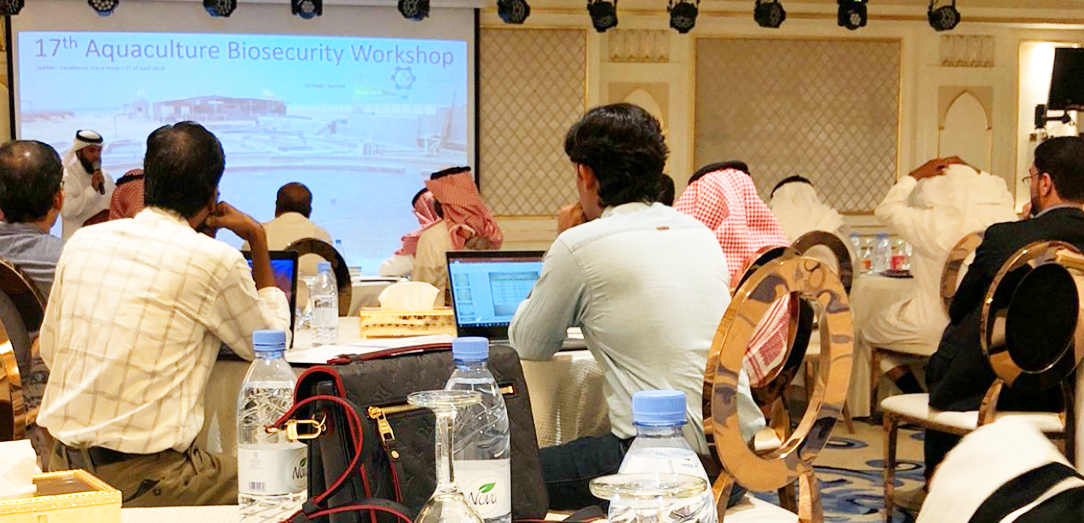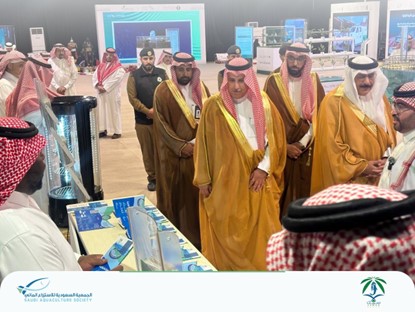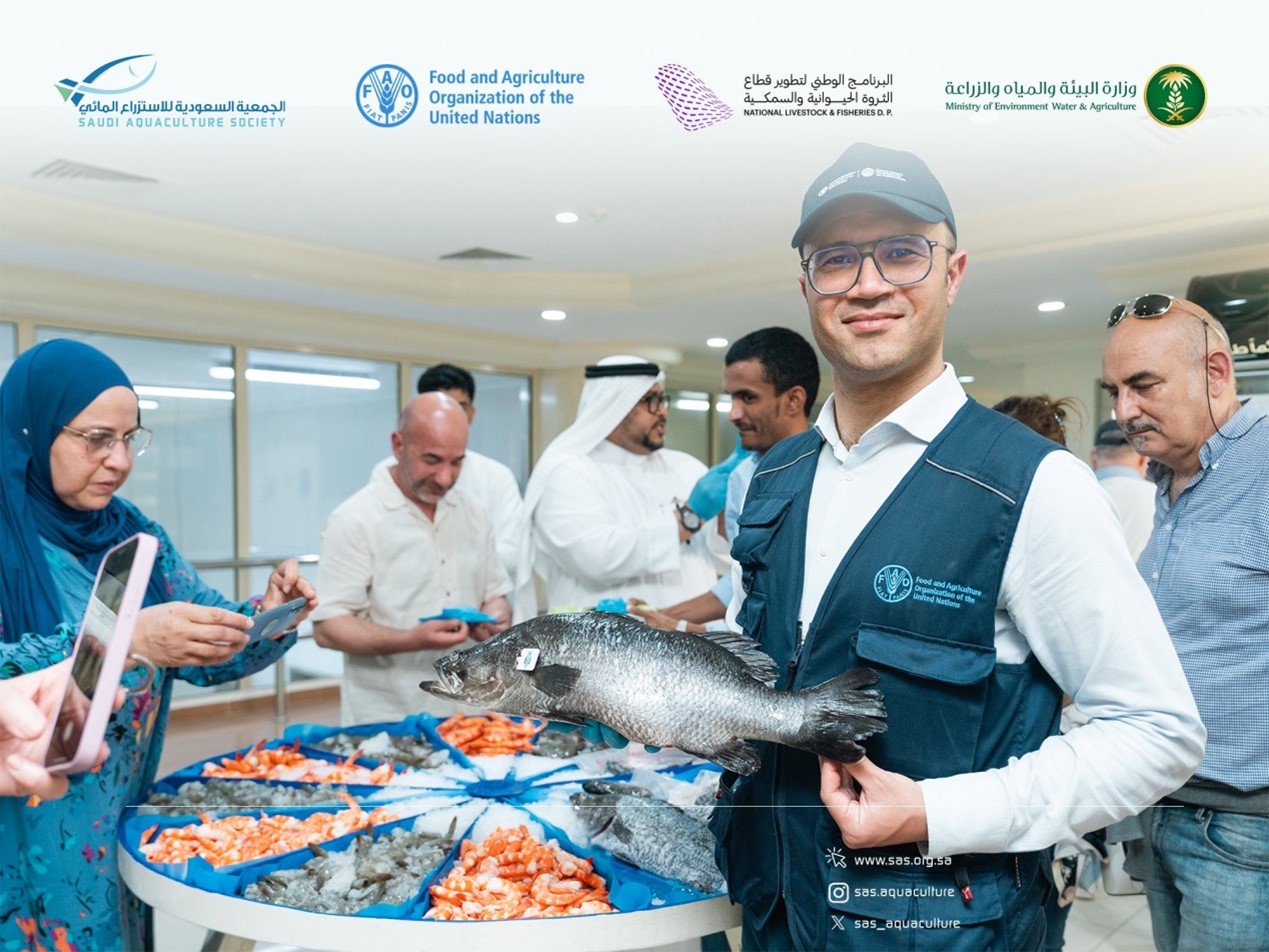
The Saudi Aquaculture Society, in cooperation with the Ministry of Environment, Water and agriculture, held the 17th Biosecurity Workshop for aquaculture projects in KSA, on Sunday, 15 Rajab 1493 H, April 1, 2018, at the Casablanca Hotel in Jeddah.
The meeting was held in the presence of the Chairman of the Board of Directors of the Saudi Aquaculture Society, Eng. Ahmed Al-Balaa, the Director General of the Department of Fisheries, Dr. Ali Mohammed Al-Sheikhi, and the Director of the Food and Agriculture Organization of the United Nations (FAO), Dr. Abu Bakr Abdul Aziz Mohammed.
FAO's international expert, Dr. Azgur Altan, has also hosted a feed and nutrition expert at FAO's Office in the kingdom. The workshop was attended by representatives of aquaculture projects and a number of officials from the Ministry of Agriculture and some academic and research bodies. The workshop was opened by the Director General of the General Department of Fisheries, Dr. Ali Shikhi, who reviewed the stages of the development of the aquaculture sector. An important economic sector within the vision of the Kingdom of Saudi Arabia 2030, and stressed the importance of the Kingdom's vital security program to maintain Sustainability of aquaculture projects and addressing the challenges of disease, especially as the next period will see a significant expansion of production to achieve 100,000 tons of fishery products by 2020.
The Director General of the Food and Agriculture Organization of the United Nations (FAO), Dr. Abu Bakr Abdul Aziz Mohammed, praised the Kingdom's efforts in the field of biosecurity in aquaculture projects. And sustainability of its aquaculture sector.
The expert Dr. Azgur Altan gave a lecture on the latest developments in the field of feed production techniques for aquaculture projects. And the importance of fodder as part of the biosecurity system in aquaculture projects.
The general situation of bio-security in aquaculture projects during the past period has been reviewed and no cases of disease have been recorded. Therefore, see the experiences of companies in the application of the Protocol and improve their prevention procedures.





.jpeg)